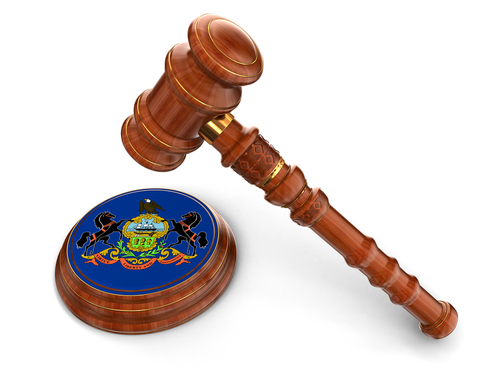Disbarred lawyer who tried to 'explain away the discipline' can't be substitute teacher, appeals court says

Image from Shutterstock.
A disbarred lawyer can’t become an emergency substitute teacher in Pennsylvania after education officials found that he doesn’t satisfy the requirement for good moral character, a Pennsylvania appeals court has ruled.
The Pennsylvania Commonwealth Court upheld the moral character requirement and ruled against former lawyer Robert Philip Tuerk of Pennsylvania in a March 24 opinion, Law360 reports.
Tuerk was twice suspended in Pennsylvania—first for failing to disclose an expunged conviction on his bar application and then for failing to disclose his prior discipline in his application for admission to a federal court. He was disbarred in Pennsylvania as reciprocal discipline for disbarment in Florida, which stemmed from his failure to respond to an order to show cause in a Florida disciplinary case.
The order to show cause alleged that Tuerk had not provided an affidavit listing the people he had notified of a previous suspension, which was based on the failure to disclose discipline to the federal court.
Tuerk checked “yes” on his teaching application when asked whether any professional license that he obtained had been revoked or suspended.
Tuerk told education officials that his suspension for failing to disclose the arrest was an “inadvertent mistake,” his second suspension was for an “administrative admission process error,” and his Florida disbarment was due to a “breakdown in communication unbeknownst” to him.
Tuerk had said he didn’t know that he had to be admitted to the federal bar separately from the state bar, and he had verbally told the federal admission manager about his previous discipline. He told the Florida Bar that he hadn’t received notice of the disciplinary proceedings.
Tuerk said he had shown remorse for his past actions, and his “volunteer activities with youth, the sick, animals and his church [are] proof of his reform.”
The acting deputy secretary of education in Pennsylvania had concluded that Tuerk did not take responsibility for his past conduct because of his “continuing to attempt to explain away the discipline” imposed by the Pennsylvania Bar and the Florida Bar.
The Pennsylvania Commonwealth Court said the record supports the acting deputy secretary’s findings that Tuerk had tried to deflect blame for his disciplinary troubles.
Tuerk did not immediately reply to an ABA Journal email requesting comment that was sent to an address listed on the Florida Bar website. A phone number listed by Pennsylvania’s lawyer discipline agency was not a working number. A phone number listed by the Florida Bar reached the American Executive Centers. The person who answered said she would forward a message to Tuerk. He did not immediately reply.



